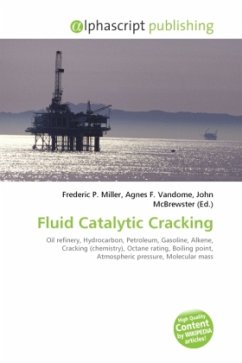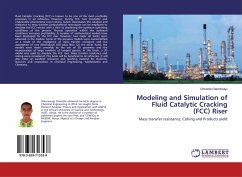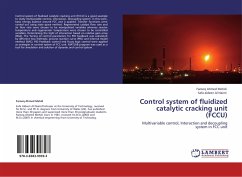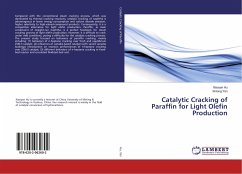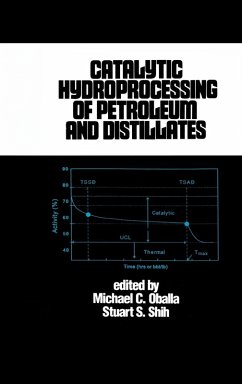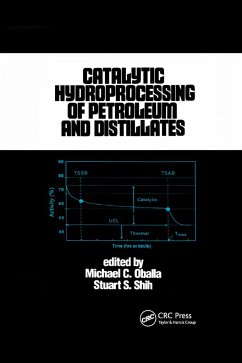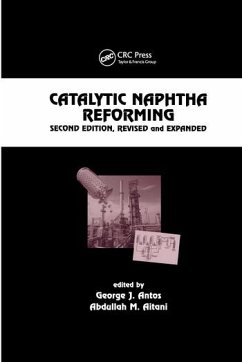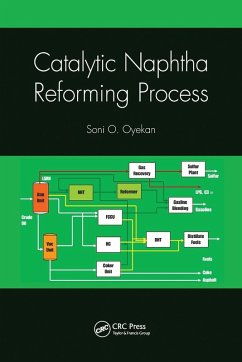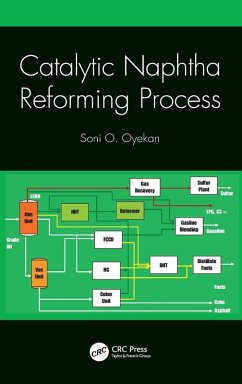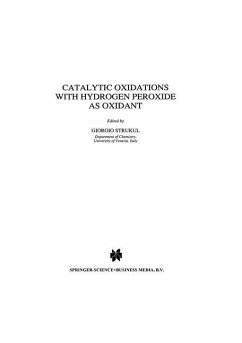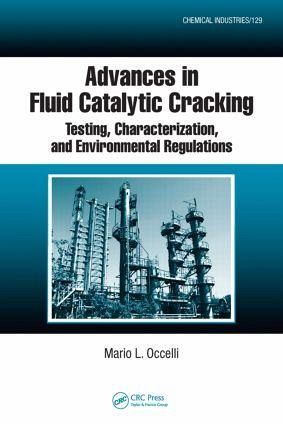
Advances in Fluid Catalytic Cracking
Testing, Characterization, and Environmental Regulations
Herausgeber: Occelli, Mario L.

PAYBACK Punkte
135 °P sammeln!
"Since 1987, the Petroleum Division of the American Chemical Society (ACS) has sponsored at three years intervals an international symposium on fluid cracking catalysts technology. Papers presented at these symposia have been published in book form in seven separate volumes. The recent global economic downturn together with the H1N1 flu scare, have limited participation and contributions to the recent 238th ACS meeting in Washington DC, August 2009. As a result the present volume contains, in addition to research presented at the symposium, several invited papers"--
Refiners' efforts to conform to increasingly stringent laws and a preference for fuels derived from renewable sources have mandated changes in fluid cracking catalyst technology. Advances in Fluid Catalytic Cracking: Testing, Characterization, and Environmental Regulations explores recent advances and innovations in this important component of petroleum refining technology and evaluates how the industry has been changed by environmental regulations worldwide. Measurement, testing, and improvement Modern spectroscopic techniques continue to be essential to the understanding of catalyst performance and feedstock properties. The book contains a detailed review of the use of adsorption microcalorimetry to measure acidity, acid site density, and the strength of the strongest acid sites in heterogenous catalysts. It also discusses the use of 1H-NMR to characterize the properties of a FCCU feedstock. In addition, the book dedicates several chapters to pilot plant testing of catalysts and nontraditional feedstocks, maximizing and improving LCO (heating oil) production and quality, and improving FCCU operations. Complying with the EPA The EPA has identified the petroleum refining industry as a targeted enforcement area for the Clean Air Act (CAA) passed in 1970 and the CAA Amendments of 1990. The final chapters of the book examine the evolution of the EPA's attempts to encourage the refining industry to enter into voluntary consent decrees to comply with the CAA and the 1990 amendments. The book describes consent decree negotiations as well as FCC emissions (SOx, NOx, CO, PM) reduction technologies through consent decree implementations. Containing contributions from a panel of worldwide experts, the book demonstrates how the global shift toward environmentalism has engineered significant changes in the petroleum refining industry at a critical level.




